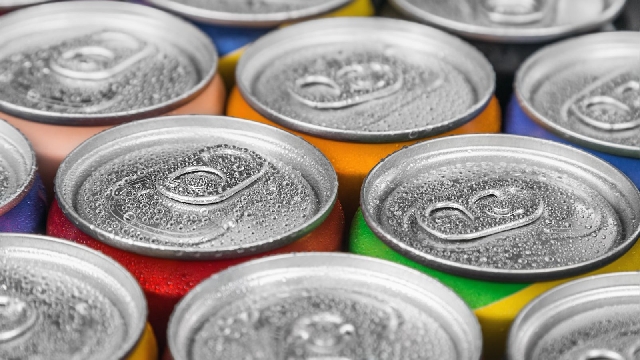Study: Artificial sweetener found in diet soft drinks 'has unexpected effect on immune system'
 Image of soft drinks
Image of soft drinks
A study into an artificial sweetener commonly used in hot drinks and found in diet soft drinks has uncovered an "unexpected effect on the immune system", scientists say.
Researchers at the Francis Crick Institute in London found that consuming a high amount of sucralose lowers activation of T cells - a type of white blood cell - in mice.
While this may initially seem like a worrying thing, the experts are excited by the findings.
If the sweetener is found to have similar effects in humans, it could be used to treat people with autoimmune disorders, including conditions like type 1 diabetes.
Autoimmune diseases are when the body's built-in defence system accidentally attacks the body, instead of protecting it.
Karen Vousden, senior author of the study, said: "If these initial findings hold up in people, they could one day offer a way to limit some of the harmful effects of autoimmune conditions."
The researchers hope that their findings could lead to a new way of using much higher therapeutic doses of sucralose in patients.
Julianna Blagih, an author of the study, said: "We've shown that a commonly used sweetener, sucralose, is not a completely inert molecule and we have uncovered an unexpected effect on the immune system.
"We are keen to explore whether there are other cell types or processes that are similarly affected by this sweetener."
Humans consuming normal or moderately elevated amounts of sucralose would not be exposed to the levels achieved in the study.
The doses tested were within recommended consumption limits, but would be the equivalent of drinking about 30 cups of sweetened coffee in a day, or 10 cans of a diet fizzy drink.
Sucralose is an artificial sweetener about 600 times sweeter than sugar and is commonly used in food and drinks. However, its effects on the body are not yet fully understood.
Karis Betts, senior health information manager at Cancer Research UK, said: "This study begins to explore how high doses of sucralose could potentially be used in new treatment options for patients, but it's still early days.
"The results of this study don't show harmful effects of sucralose for humans so you don't need to think about changing your diet to avoid it."
The findings were published in the Nature journal.
Source: news.sky.com
Trending News

Dr Adutwum will never let you down: Opoku Mensah assures delegates
21:06
Over 1,000 acres of galamsey-devastated land reclaimed in Upper Denkyira East
15:50
A-G charges Gifty Oware-Mensah with stealing GHS 31.5 million
00:09
A/R: Police arrest two in connection with robbery and murder at Tweapease-Aboo
02:02
Energy Minister to inaugurate 13 rural electrification projects in Central Gonja district
16:36
ECG, GRIDCo, Ghana Water Company cries over illegal mining menace at PURC hearing
17:49
President Mahama’s integrity steering the nation in the right direction - Beatrice Annan
15:37
Illegal mining a national security threat — Wa West MP warns
16:32
Akyem Kotoku chief pays courtesy call on Lands Minister; discusses protection of natural resources
01:43
Gov't commences 98th cycle of LEAP cash grant payments, 1.5m people to benefit
16:34




